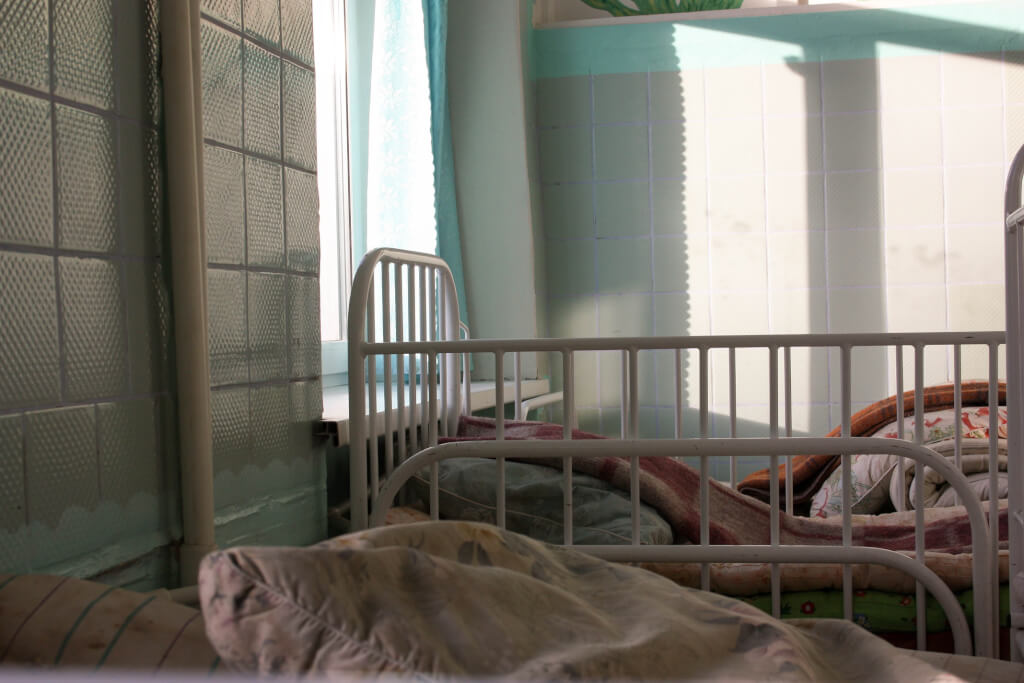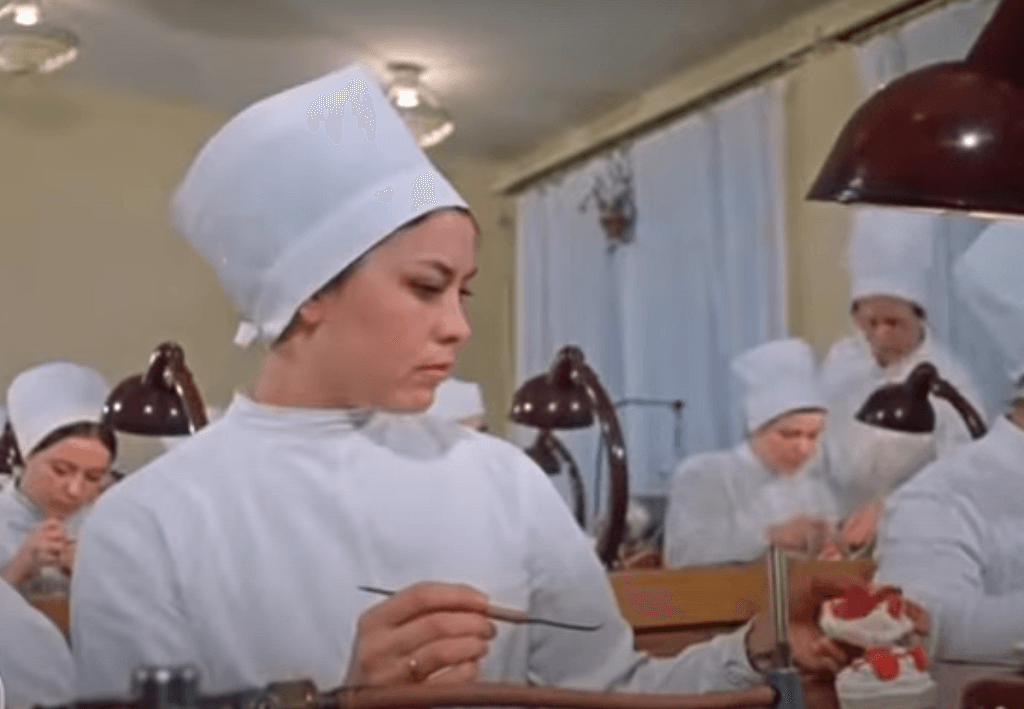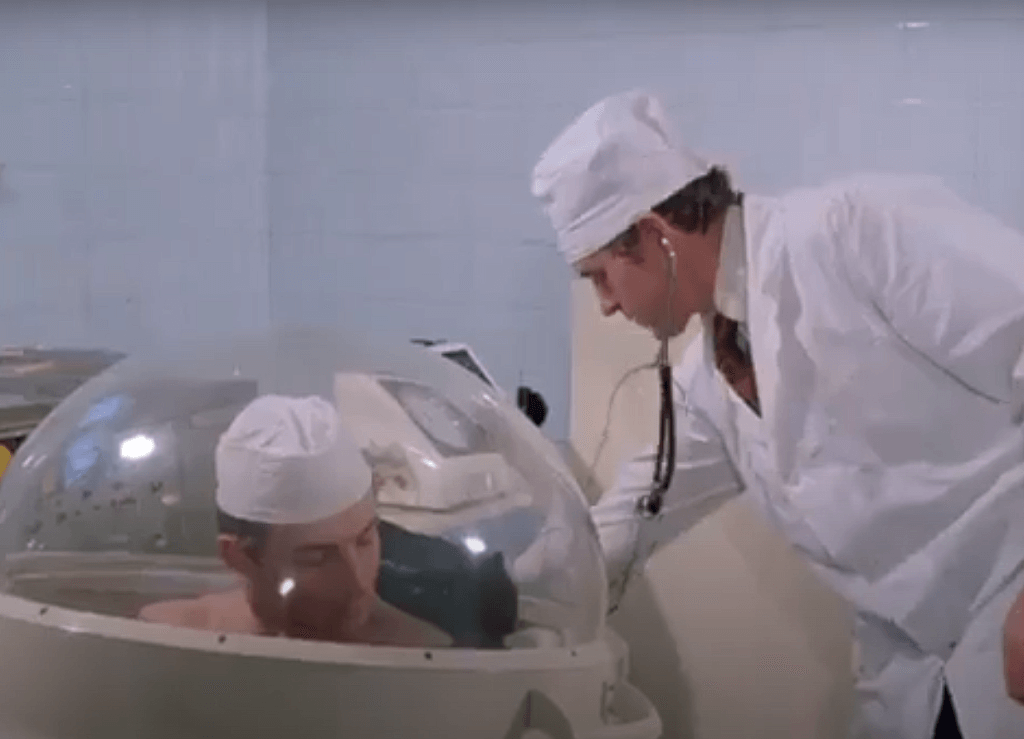Cognac for tooth extraction, illiterate students and infernal childbirth: what was actually medicine in the USSR
'14.06.2020'
Source: Lenta.ru
Soviet medicine was considered the best in the world, writes Lenta.ru. But was it really so?

Fans of nostalgia for the times of the Soviet Union believe that everything was the best in the USSR: ice cream, sausage, transport, catering, the best education in the world. And, of course, a “free and universal” medical system, which was not equal in the world. Lenta.ru understands what Soviet health care really was and why it could not be called free, universal, or advanced.
The Filatov Children's Hospital was far from the worst option in 1987 for a seven-year-old boy with chronic runny nose and adenoids. At the front desk, my mother said that there would be nothing wrong, just “they would remove the snot from the throat”, and then she would definitely buy him a kilogram of ice cream - because after that she had to eat a lot of cold.
Rising into the room, my mother threw a set of removable clothes into a nightstand with a falling door, a couple of apples and left. The day passed in games with peers, and at night the boy could not fall asleep for a long time, but nevertheless, closer to the morning, his dream ruined him. They raised the ward at 6 o’clock and led the convoy to the second floor, to the surgery, putting everyone in line.
It was dark in the surgery, it smelled of alcohol, cigarettes and fumes - from the doctor who did the surgery. The boy was seated and immediately wrapped with gauze tows of his hands to the arms of a hard chair. It was terribly scary, but it was only just beginning - the child’s head was tied to the back.
“Well, open your mouth!” Open your mouth to whom you said! ” The surgeon growled, unclenched the boy's jaw and launched into the throat some sharp instrument with which he began to scrape along the nasopharynx. It was terribly painful, and of course, there was no question of any anesthesia. After the operation, the boy was given a gray towel (once it was definitely white - about ten years ago), in which they told him to spit up blood.
Mom, of course, didn’t buy any ice cream for him, but he was extremely glad that after dinner she had come for him and taken away from this terrible establishment.

Soviet statistical miracle
In 1913, in the Russian Empire, there were 1,5 doctors per 10 thousand people, while, say, in the UK this figure was 6,54. However, after fifty years, the Soviet government boasted that the USSR took not only the first place in the number of doctors in the world, but also in the number of doctors per citizen.
Here, however, it is important to understand how and due to what these figures were achieved. At the dawn of Soviet power, the Bolsheviks were faced with the terrible state of the country's medical system and made remarkable efforts to change the situation.
It is important to note here that the Soviet health care system should have been radically different from the western one and worked in a regime of geopolitical self-isolation. In ideological terms, doctors should have contributed to the creation of a new type of socialist society, and in addition (as follows from the first paragraph), they should be completely subordinate to the state and the party. All decisions came down from above, and medicine as a profession and field of knowledge was deprived of the possibility of self-regulation.
A new generation of doctors was brought up in conditions when quantity was more important than quality. The output was not thinking experts who were able to develop their own treatment methods based on the knowledge gained, but rather “techies” who memorized a certain set of practices and unshakable axioms. The old guard of experienced doctors could not interfere with this policy.
The doctor Lyudmila Krasina, who studied at one of the Leningrad medical universities in the mid-30s, recalled how superficially they taught theory. “All professors wanted students to have good grades. At the exams, they asked the simplest questions and said that if we read their lectures carefully, we will pass. ”
The professor gave students lectures in text form, but many of her classmates were so illiterate that they did not read well, and she had to help them. And here it is important to note that from the 1920s, applicants of workers and peasants' origin began to be taken to medical universities, and in the 1930s, due to lack of personnel, the term of study was reduced from five to four years. All this, of course, could not but affect the professionalism of graduates.
Interestingly, two years before the events described, Lyudmila's father, a professor of medicine at the First Leningrad Medical Institute, was arrested. According to her, this happened because he opposed such a superficial approach to teaching and only demanded that students take exams not in word but in writing. Since then, Krasina has never seen her father, and his fate was unknown.
Of course, over the years, the situation has changed, illiteracy has been eliminated, the curriculum has been improved. But the same principle continued to underlie the Soviet system of medicine: quantity is more important than quality.
This situation is well illustrated by an article published in the “Medical Newspaper” by Professor Vitold Brzesky from the Grodno State Medical Institute. She showed that the teachers tried to overestimate the grades of the students, since their work was not judged by whether they managed to pass the knowledge on to the wards, but on the points that they received. And if you don’t overestimate the points, then there will be claims to the lecturers, “but who wants him to be parsed?” At the same time, of course, neither the quality of teaching, nor the level of knowledge of students is increasing. Unsuccessful second- and third-year students reached out to graduation - after all, state money had already been invested in their training. And such people received a profession and became doctors.
Brezky gives an example that seems anecdotal, and yet there is not a drop of fiction in it. So, at the exam, one of the students asked the simplest question: where should a tourniquet be placed on the damaged limb - above or below the wound? She answers “under”, demonstrating her complete incompetence.
However, when the chairman of the examination committee already wants to put “bad luck”, the dean gets up and starts a barrel organ that the examinee sang well in the student choir during her six years of study and worked well. “Such an argument often turns out to be quite effective,” Brzesky notes with regret.
Shareware
Of course, many in childhood read about the achievements of Soviet medicine. The hero of the Soviet press of the 70-80s was Dr. Gavriil Ilizarov, an innovator who introduced a unique apparatus for fast splicing and repair of bones, which is still used today. In the USSR there were many specialists who really loved their profession and worked miracles - rather contrary to, and not thanks to the existing system. But the bulk of the medical staff remained the same as the workers in other areas of the Soviet economy: unmotivated and often poorly educated.
Indeed, in addition to the general low level of medical education, doctors generally received the same salary as, say, an engineer. That is, depending on qualifications - 100-150, a maximum of 200 rubles.
This situation not only pushed the doctor to a bribe - Soviet medicine and bribery were literally synonymous. Soviet citizens also actively contributed to this, who quickly got used to solve all their problems by “bringing something to a good person.” And when it came to health, there was nothing to think about. “Gifts” were a mandatory attribute, without which it was simply strange to go to the doctor’s office with a serious question.

Moreover, the reluctance to accept such bribes was often interpreted by Soviet citizens as the doctor’s lack of confidence in their abilities. How is it, they reasoned, does not take money, does not accept gifts, which means that he does not value his work or is not sure that he will not do worse. Bad doctor, apparently.
It was generally better not to come to the dentist without a gift. One of the issues of the Crocodile magazine for 1979 describes a real case that occurred in a dental clinic in Tbilisi, where a doctor demanded a bottle of the Abkhazia Bouquet for removing the incisor and cognac for removing the molar.
This information reached the head physician, after which a staff meeting was convened, during which the opinions of the staff were divided. While some condemned this practice, others found that "there is nothing special here." And one doctor even said: “If a person has done good to another person, why on earth should he not wait to be thanked?” Finally, the inspectorate of the Republican Ministry of Health came to the clinic and the dentist was fired, but this sketch shows how natural it was to receive a bribe for what was part of professional duties.
On the subject: 'Wretched dishes of Soviet cuisine': what treats from the USSR we do not miss
Thus, Soviet people paid regularly for free health care, and in the era of the Brezhnev stagnation, the sphere was completely mired in corruption (in fairness it should be noted that not only medicine, but also any sphere of the USSR economy). At the same time, bribes did not open access to advanced methods of treatment - in the same dentistry, it was a question of terrible drills made according to foreign samples that have not been used in the West since the 30s, metal crowns, killing of a nerve with arsenic and cement fillings. It was impossible to get a service of a different quality, because there was neither the corresponding equipment, nor specialists.
The practice of compulsory endowment of a doctor substantially outlived the Soviet Union and only recently began to withdraw from the routine of Russians. However, some of its segments were so ritualized that they firmly entered our everyday life. Even with young doctors who studied in the 2000s, in a completely different reality, in the kitchen or at the bar you can find a bottle of cheap gift cognac or homemade raspberry tincture in a vulgar swan bottle. Throwing away gifts is inconvenient. It is even more difficult to at least somehow logically explain the tradition of giving money to the nanny from the maternity hospital who is carrying the child to her father - as if she would be responsible for the baby’s health and well-being, and she, as a patron spirit, should be appeased by the sacrifice.
Born in the USSR
In general, Soviet maternity hospitals are a separate issue. Most women who gave birth in the USSR remembered this institution only as a torture chamber. Impressions can be found, for example, in LJ of the researcher of Soviet everyday life Dmitry Rumyantsev.
They paint a bleak picture in which the maternity hospital was not allowed to have either their clothes or even their clothes — walking only in a hospital gown with strings. Moreover, the staff treated patients as a burden, "stealing from doctors and nurses valuable time that they could spend more profitably."
On the subject: Expensive-rich: 4 ridiculous habits that betray "stuck" in the USSR
"Winter 1984. Leningrad, a pediatric institute, recalls the user madlesha. - The attitude is terrible, everyone talks down, everyone has no time. It was very cold outside -25. There was no hot water, the boiler was not allowed to be transferred to relatives. Mom handed me a pack of sugar, they secretly used the whole chamber. There were 12 of us in the ward. There is no bathroom, on the toilet everything is on parole. It’s scary to remember ... "
Another user talks about how, when one of the women in labor vomited in the ward, a nurse flew up to her and made her clean up after her, and the drunk nurse turned over the gurney with the newborns. “Our first child died because the doctors did not come. The wife screamed, and they came up and said: “Well, this is nothing, this is the first birth, this is garbage! You endure, do not shout! " And when they got alarmed, it was already too late, "bormental_r describes the terrible experience.
“Of course, I don’t want to say at all that in all Soviet maternity hospitals there was something that readers of the magazine recall,” writes Rumyantsev in his post. - And for sure there were very good maternity hospitals. So, for example, as they say, was the hospital number 7 named. Grauerman, in which I was born. But however, the fact that almost the same gloomy memories affect the hospital in different cities and in different years is very indicative. ”
Bureaucrat Games
This state of affairs was for ordinary Soviet citizens, but not for nomenklatura. Party functionaries used the services of departmental clinics and hospitals, in which the service and its quality were often completely different.
Often, but not always. In the already mentioned “Meditsinskaya gazeta” in the early 80s, medical facilities of the Ministry of Railways were criticized. The article, written by Natalia Temuriants, Doctor of Biological Sciences, shows how departmental branches of the healthcare system not only did not improve, but also complicated the lives of workers.
On the subject: As the USSR stood in line for 'Western life'
She describes a departmental clinic in Sevastopol, located on the ground floor of a residential building, in which there are no half of the specialists. For their services, railway workers are sent to Moscow, Dnepropetrovsk and Simferopol, although a modern medical complex is located a couple of blocks from this building. This is only because the employees of the Ministry of Railways should be served in departmental institutions.
The scheme for supplying such clinics and hospitals with medicines looked no less idiotic. Instead of ordering goods on the spot, the clinic had to send a request to the Ministry of Railways. Moreover, the ministry even had its own separate blood transfusion service, which collected blood from donors from various regions where the railway ran to send it to Dnepropetrovsk, from where it, after analysis, was sent to places. Such a long and meaningless procedure, of course, affected the quality of medical care.
Special way
The impossibility of providing really high-quality medical care and the isolation of Soviet scientific thought from the world led to the fact that in the Soviet Union there appeared many quite official practices for treating diseases, the effectiveness of which was practically not confirmed by anything.
One of them is hardware physiotherapy. Only in the USSR and Russia practiced methods of treating all kinds of painful conditions using UHF, magnetic exposure and other dubious devices. It is also possible to add sanatorium-resort treatment, which in essence was no treatment and was a development of the practice of going out into the water, beloved by pre-revolutionary doctors. It appeared, obviously, not from the miraculous effect of those very waters, but from the weak development of medicine.

In the same piggy bank it is worth putting “diseases” that were diagnosed only in the USSR and which continue to be diagnosed in Russia. The mysterious “vegetovascular dystonia” is a wide range of symptoms from depressive psychosomatic disorders to severe psychiatric and neurological conditions. The diagnosis of “osteochondrosis” simply means back pain - no matter what genesis. And the treatment of "weakened immunity" with vitamins, interferons, and other fuflomycin, the effect of which is practically not proven, has little in common with medicine. As well as "dysbiosis", which is determined by a completely uninformative analysis of feces.
It is not surprising that in this situation, both many citizens of the late USSR and modern Russians have lost confidence in medicine and prefer self-medication or alternative practices.
On the subject: 'Girl takes away beauty': how pregnant women in the USSR determined the sex of an unborn child
Although there is another, more compelling reason. As the sociologist Polina Aronson writes in her work, in the USSR expert medical knowledge was concentrated exclusively in the institutional environment and transferred down to the consumer of medical services, in the form of an order, invading the private space of a person’s physicality. Therefore, now "first of all, expert medical knowledge is often seen by patients as a source of danger to the human body." Medicine is incomprehensible to people, they see it as something alien, hostile - hence the common sayings like “while I’m alive, I don’t go to doctors”. Therefore, citizens are trying to be treated, finding "proven means" and "good specialists" on their own, according to rumors and connections. Which, of course, led to the spread of semi-magic practices and the use of drugs, the effectiveness of which can not even be verified.
The collapse of the Soviet Union brought a new problem - the disappearance of confidence in the state as such, and, therefore, in state medicine as such. And since the times when at least something was clear and understandable have gone into the bright past, Soviet medicine seems to people to be an order of magnitude better than existing now, and besides it is free, honest and universal.
Probably, this thesis was best illustrated by director Nikita Mikhalkov in the release of his Besogon TV program, where he talked about how Bill Gates would chip the world’s population with coronavirus vaccines. “But these are not the vaccinations, as against polio and smallpox, as we were given at school,” Mikhalkov said. And this phrase contains everything: longing for childhood and adolescence, for a country in which everything was clear and understandable, and even for vaccinations from good old diseases, and not from the coronavirus invented by [Americans / Chinese / reptilians].







